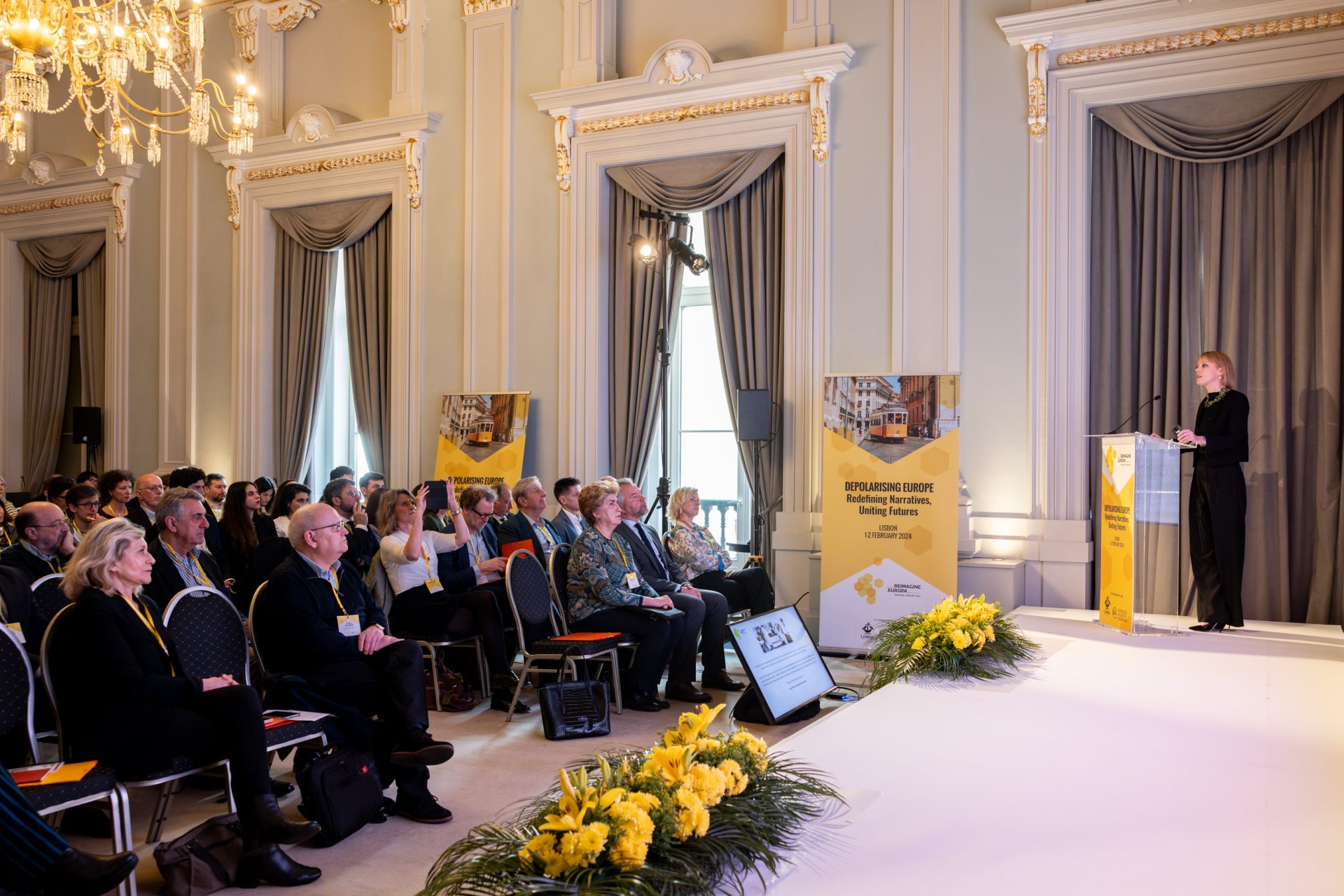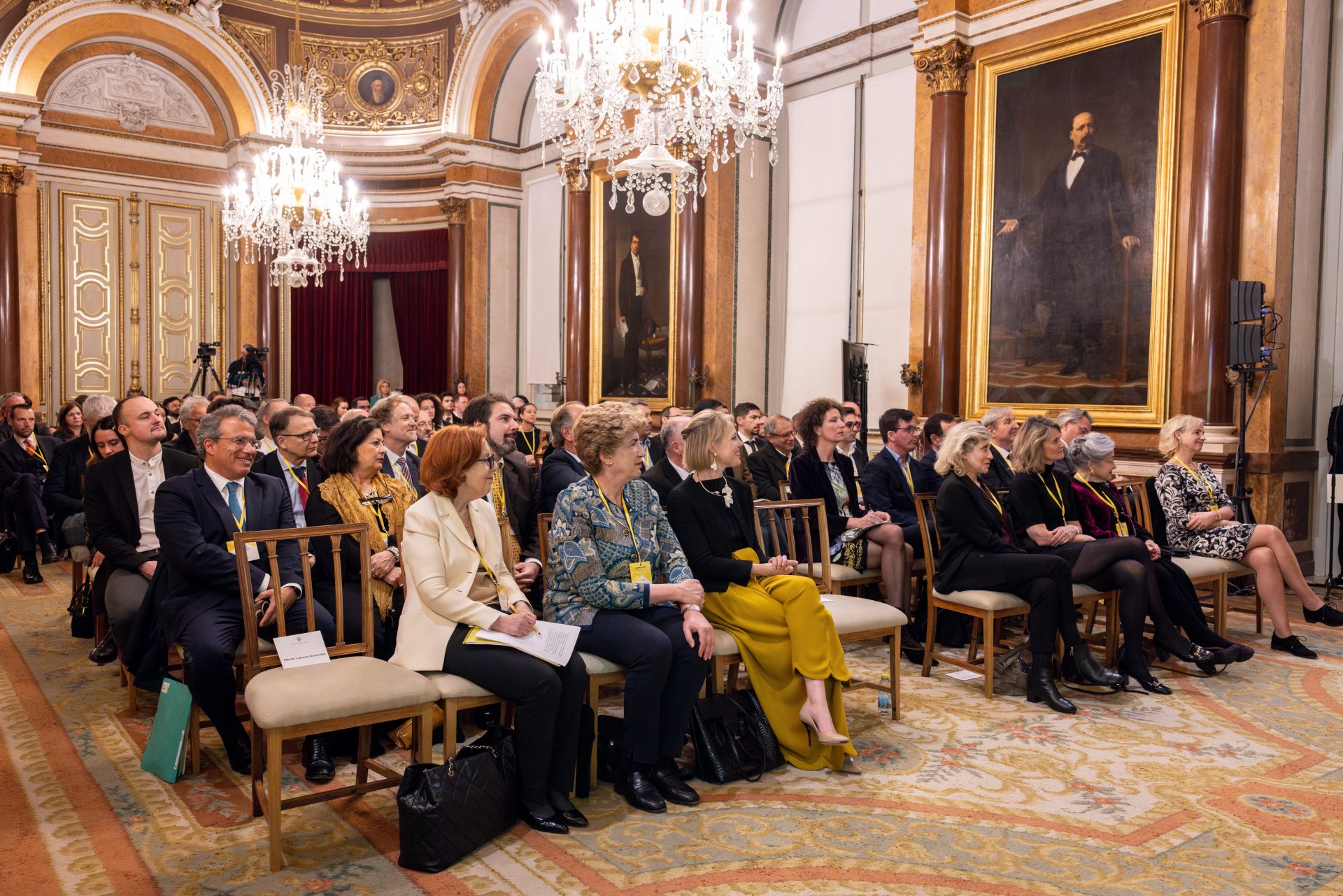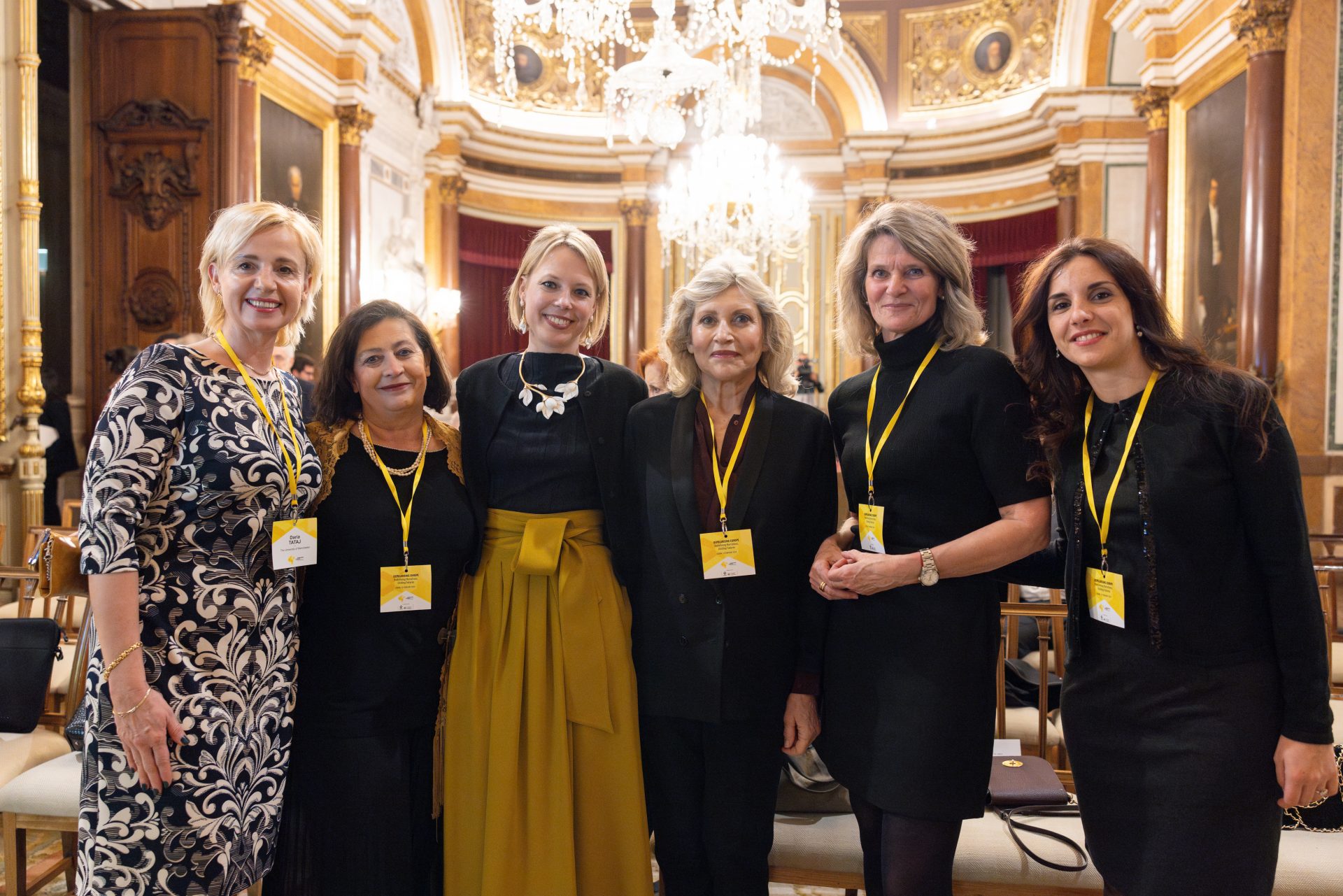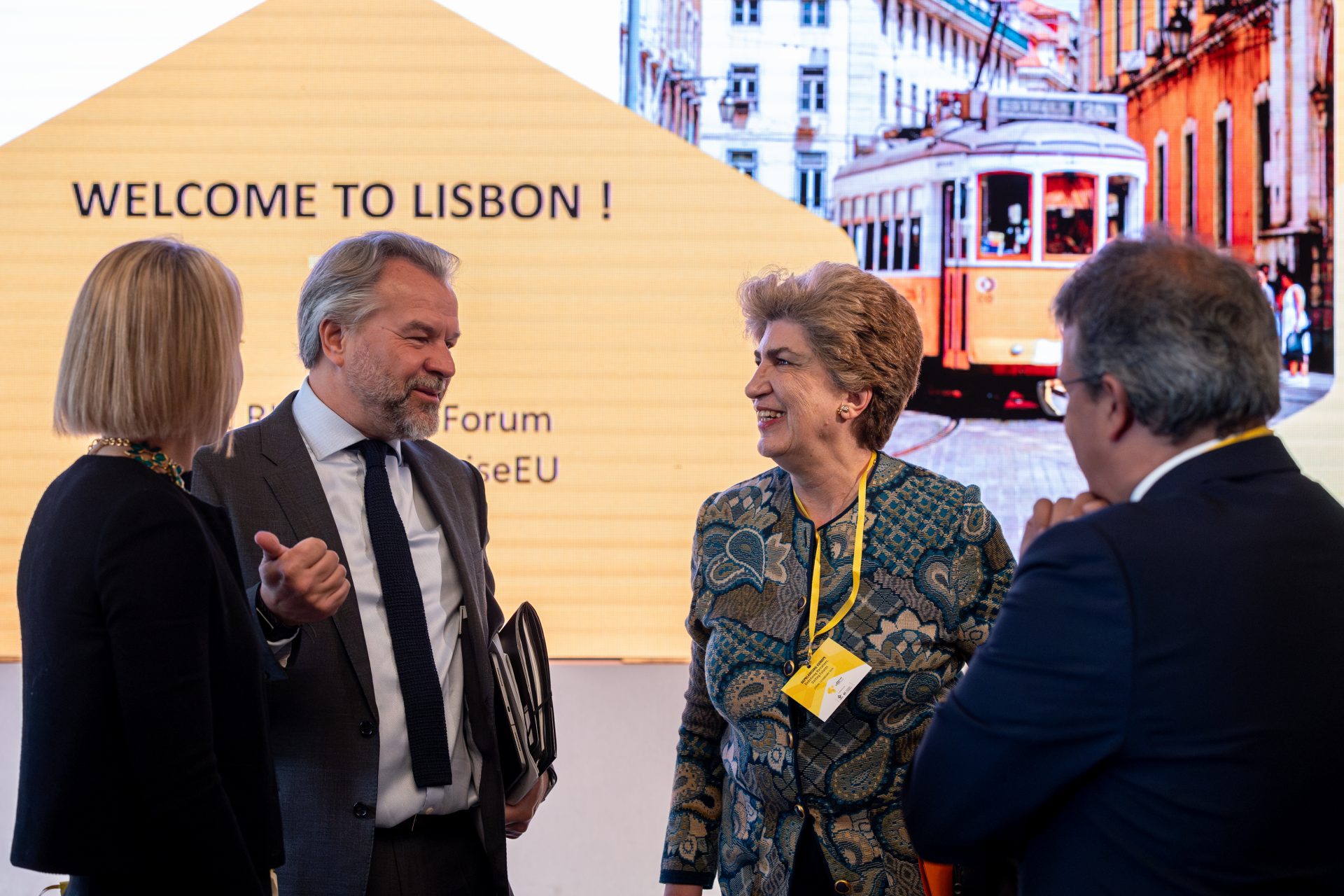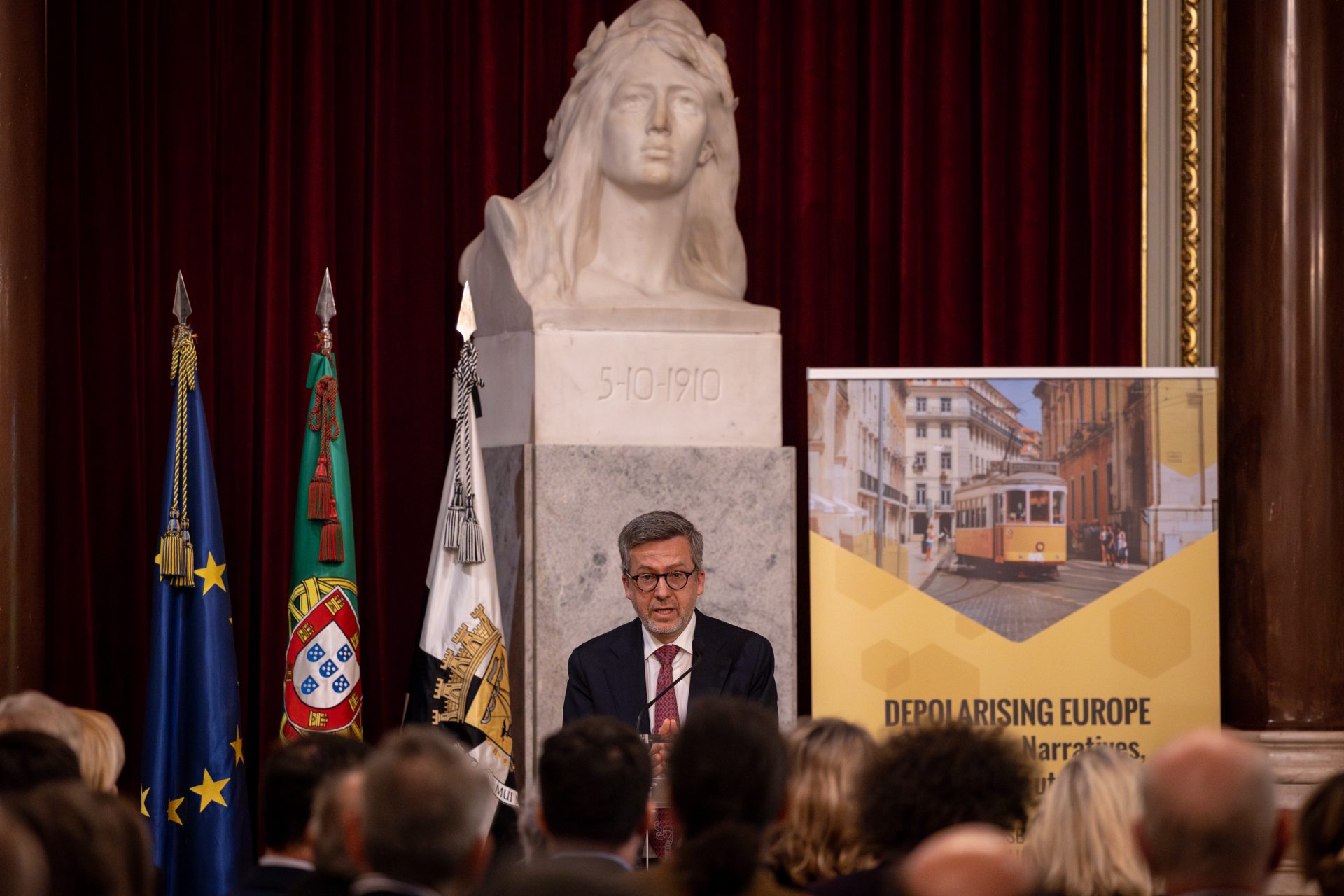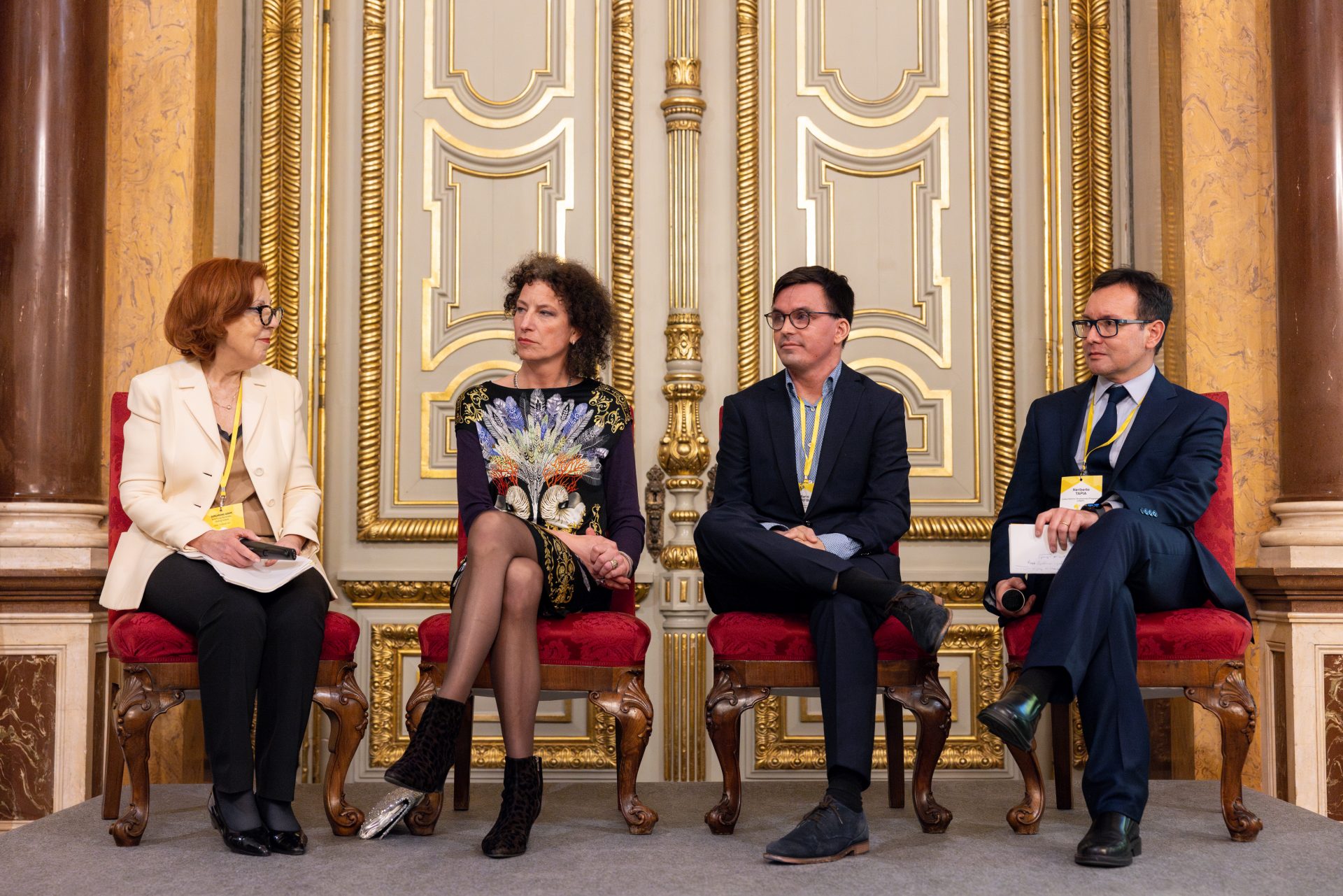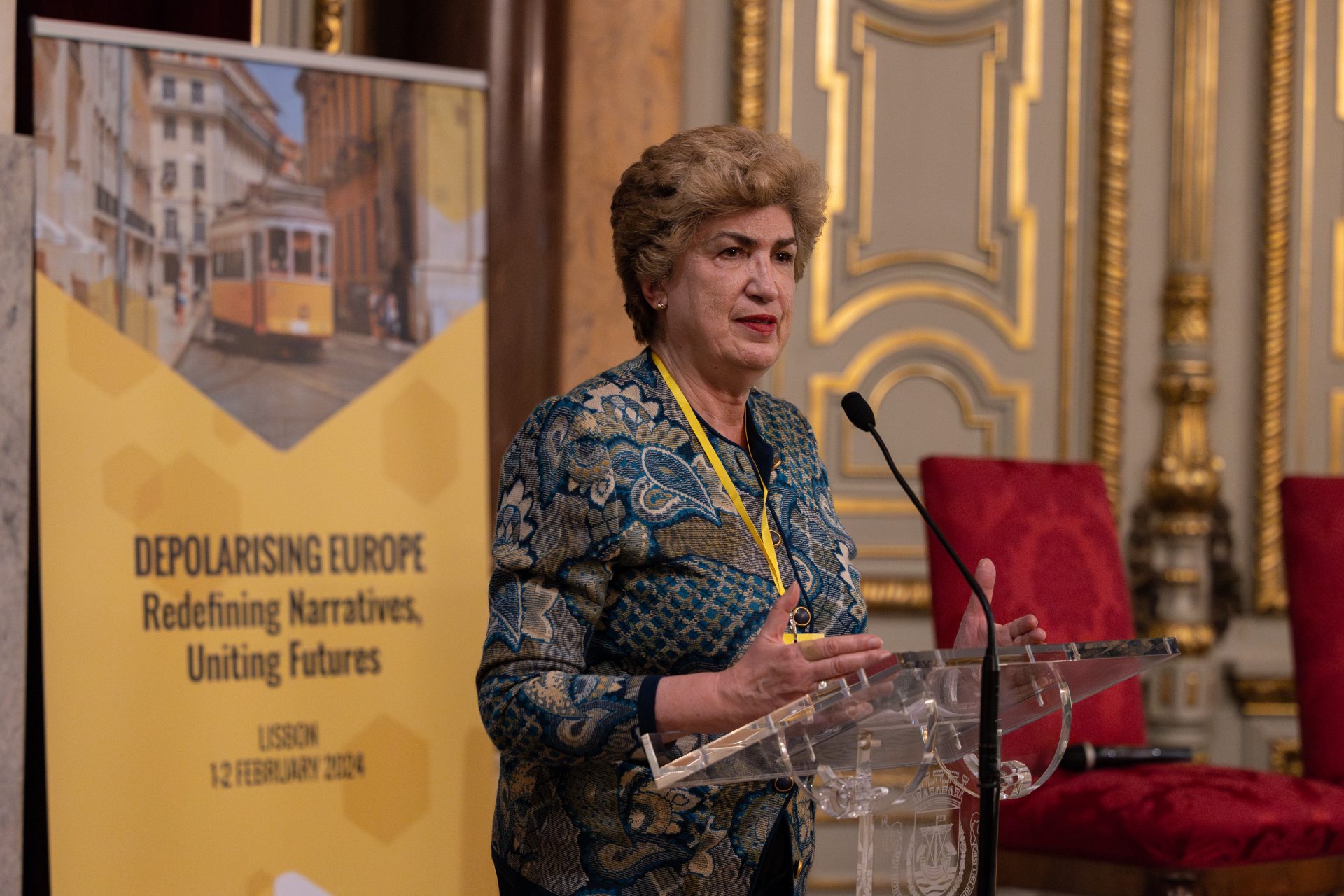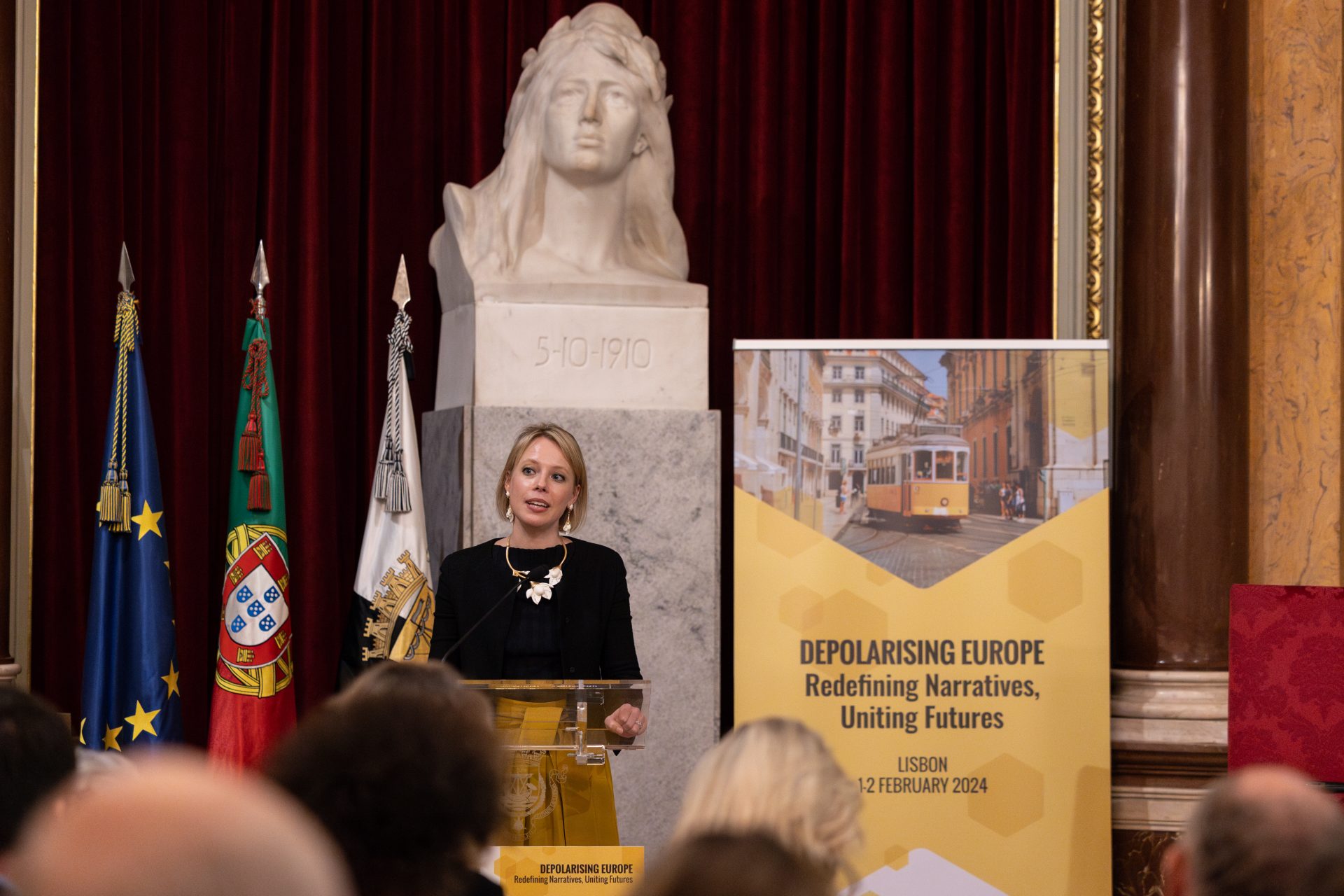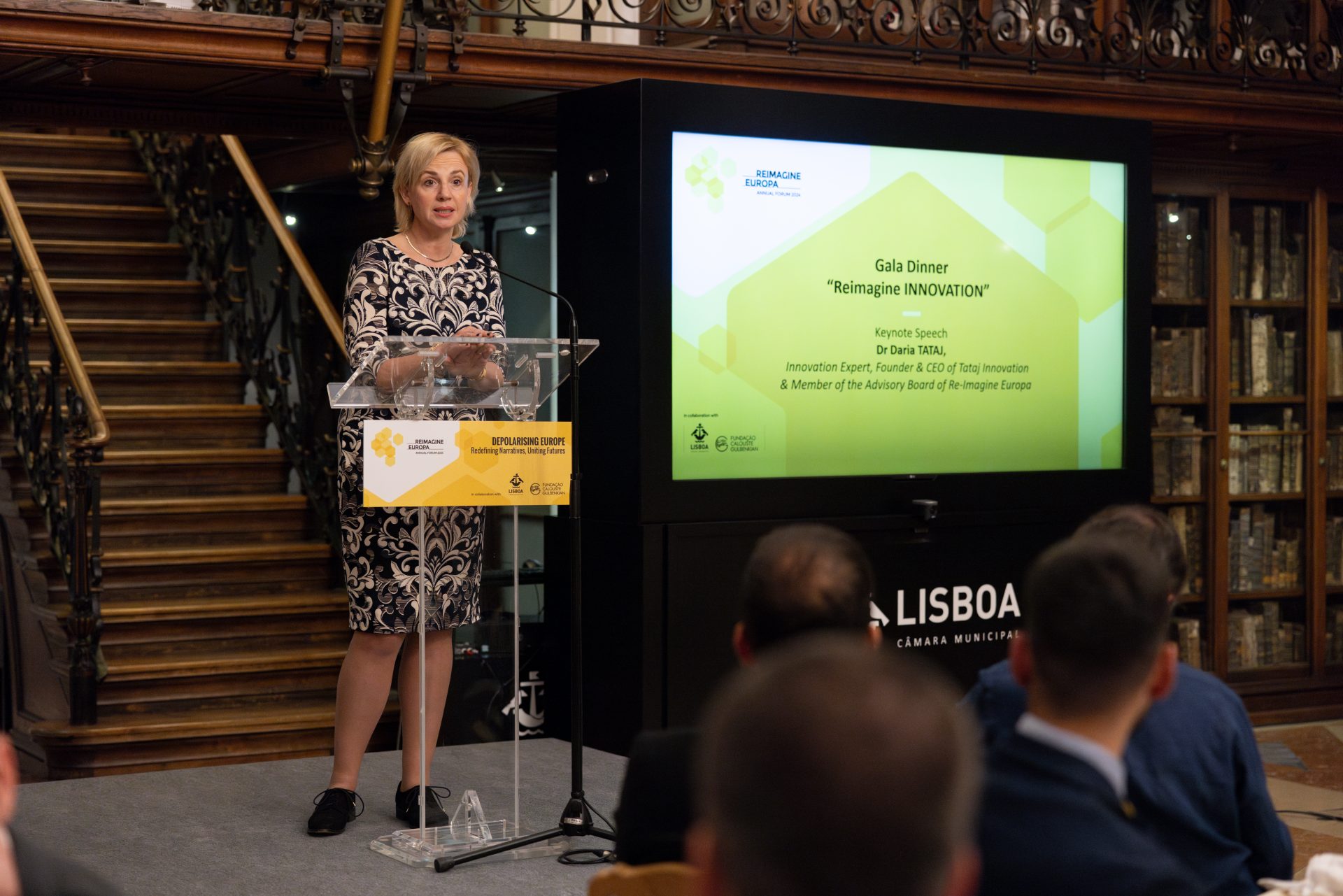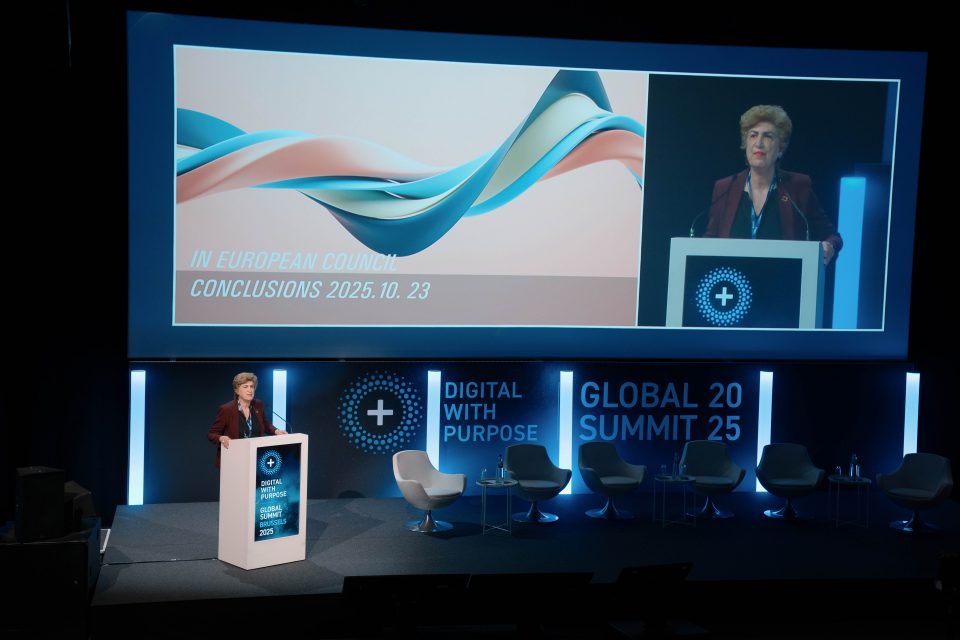“We need to move from trying to win a debate to trying to start a conversation. And the best way to start a conversation is not talking, but listening”.
Erika Staël von Holstein, CEO of Re-Imagine Europa, inaugurated the Annual Forum of the non partisan think-tank introducing the REFRAME Methodology developed by a research team led by Professors Andrzej Nowak and Marcin Napiórkowski, drawing on the work of Professor Manuel Castells and Professor António Damásio. Staël von Holstein presented the audience with the Cycle of Distrust that dominates the public sphere in many countries around the world since the financial crisis: “Polarisation is so effective, that it manages to block any path forward and impedes us to address the very real problems of citizens. And when something is happening in countries as different as Sweden, Brazil and the United States, then it is not one politician, one policy or one person. This is something much deeper in society”. Staël von Holstein invited all participants to change their mindsets and consider that diversity and conflict, two common characteristics of Europe and democracy itself, “are not a weakness but actually as strength, if we manage to depolarize the fact that we disagree”. “The fact that we we have differences is the biggest strength to find the best new solutions to deal with the very real problems that we have as a society”. The co-founder and CEO also instigated the participants “to alter the approach and instead of being stuck in quagmires, and tilting at windmills, and fighting about the same things and framing the debate as we have done for the past 20 years… What if we think about it radically differently? Can we then reimagine things?”
More than one hundred scientists, policymakers and civil society representatives from across Europe gathered at RIE’s Annual Forum to do exactly that, providing an enormous richness of insights, analysis and concrete proposals to reimagine key challenges of the 21st century: from Agriculture to Deliberative Democracy, Climate Narratives, Taxes, Data, AI & Knowledge; and the role of Europe in the World. The event Depolarising Europe: Redefining Narratives, Uniting Futures’, was hosted by Carlos Moedas, Mayor of the City of Lisbon, former European Commissioner of Research, Science and Innovation, and member of the Advisory Board of Re-Imagine Europa. A satellite event about Communicating Science to counter Polarisation and Disinformation on Sustainable Agriculture, organised in collaboration with ALLEA, was hosted by the Calouste Gulbenkian Foundation the day before. The deep analysis, insights and proposals provided by the experts participating on the workshops will be presented to the next European Parliament in a crucial year for democracy, as more than 4 billion citizens around the world will elect their representatives during 2024.
The closing session included a welcome address by Mr Carlos Moedas, who expressed his worry for the growing polarisation in the social and political landscape: “I am worry everyday that the polarisation of the extreme political parties, to the left and to the right, are creating situations of friction and breaking the system” Moedas expressed his conviction that to solve people’s real problems we need to be “aggressively moderate”. “How can we be the ones that are activists of moderation? How can we create a place where people are not just against you or for you, that people listen to you and respect your ideas and that everybody is what they want to be?
Moedas remarks were followed by a Panel Discussion on “Narratives, Emotions and Polarisation” with a thought Starter by Professor Manuel Castells, Sociologist, RIE’s Advisory Board Member and former Minister of University of the Spanish Government and the participation of Ms Maria da Graça Carvalho, Member of the European Parliament; Ms Erika Koehler, Strategic Advisor for the Europe Department of the Dutch Ministry of Foreign Affairs; Mr Mario Scharfbillig, Science Policy Advisor at the Joint Research Center of the European Commission and Mr Heriberto Tapia, Head of the Research Team at the Human Development Report Office of the United Nations Development Programme (UNDP).
Rise of undemocratic forces
Professor Castells explained that society has suffered many consecutive crisis over the past decades and “the most serious is the crisis of Crisis Management, meaning that we are loosing the political and institutional instruments to manage all these crisis because the institutions and the political systems have widely lost the trust of citizens”. “We have to dare to address fundamental issues of a number of policies that are going to challenge the way we live and the way we are. This can only be done with the trust of citizens. And for the moment this is not the case except in some exceptions” As a result of that, we see “a rise of undemocratic and ultimately destructive policies all over the world. In many cases, with the support of a majority of citizens. And that’s the critical point. It’s not that they are extremist forces. The problem is that the extremist forces are winning predicament and support among large segments of the population in every country. I always mention that Hitler came to power elected by the majority of German citizens. So, it is not a putsch what we have to fear. It’s the subversion of the democratic order from inside the democratic societies”. Referring to the upcoming European elections, Castells expressed his worry because with the rise of extremist forces in many countries, “is highly likely that the next European Parliament will have a blocking group of members of parliament that will be anti-European”. To respond to this enormous challenge, Castells defended “more democratic politics that can enlarge democracy, deliberative and grass root, direct relationship with citizens” and highlighted the REFRAME Methodology developed by Re-Imagine Europe as “a very precise, rigorous model to analyse polarisation and depolarisation” with “specific forms of engaging with society at large”.
The dangers of political stalemate due to the rise of extremist discourses and the need to listen to citizen’s needs more closely were also highlighted by the panelists. Maria da Graça Carvalho made a passionate defense of policymaking based on scientific evidence. To address our big challenges in agriculture, climate change, democracy, populism or the extremisms, “the solution is to make decisions that are evidence-based, that are science-based, that have knowledge and have ethical principles”. Ahead of the European Elections, the Portuguese MEP launched an open call to alert against polarising discourses: “The extremist groups don’t believe in science and they don’t contribute to solutions. So I hope that those that believe in science, in ethics and in good solutions will continue to develop good policies for Europe that have impact in the world”. Erika Koehler praised Re-Imagine Europa’s methodology to combat polarisation and the need to focus not on wining but on fostering an “empathetic listening” that can help us to build something together. “In Europe we are great at having ideas”, “we hold the middle ground between the extreme collectivism of China and the extreme freedom of the US, we are about the balance, about getting things done together, about win-win”. A spirit that, according to the Dutch diplomat, is precisely Europe’s biggest strength. The importance of listening to others empathically “to be able to understand that we may have something in common and we may find a common solution” was also underlined by Mario Scharfbillig, The Science Policy Advisor signaled that “scientific facts are great but they hardly change people’s mind or heart”. In his opinion, the methodology developed by Re-Imagine Europa can be a solution for that. “Reframing is a good strategy” to find a “meta narrative that unites different opinions, different views, different values”. For Heriberto Tapia, the cycle of distrust that dominates most countries is “one of the biggest worries” of the United Nations Development Program. “The human development index is reaching its highest level in history, yet people are feeling increasingly worried”. “We need to listen to people because otherwise other leaders are going to do so and maybe with bad consequences, leading to populism”.
The closing address was given by Professor Maria João Rodrigues, Chairwoman of Re-Imagine Europa’s Advisory Board, President of FEPS & former Member of the European Parliament. “Europe is in search of direction right now. Europe is in search of inspiration, and that’s why I may say I am so pleased that we decided to locate Re-Imagine Europa’s Annual Forum in Lisbon. Because Lisbon is a place of inspiration”. A city where many important decisions regarding the European Union were taken, from the Lisbon Strategy, that put innovation at the core of Europe, to the Lisbon Treaty. She also praised Mr. Moedas and the city of Lisbon, recently selected as the European Capital of Innovation. In a very important moment to define the future of Europe, Maria João Rodrigues expressed her conviction that the traditional method of strategic direction (identify challenges, assess pros and cons, define priorities, etc.) is not enough anymore: “Our belief is that this is not enough. If we really want to have wise decisions and we want to deliver them involving citizens, then we have to involve citizens from the start”. RIE’s Chairwoman detailed some of the initial conclusions obtained in the different workshops and signaled the key elements of the REFRAME Methodology: “Is fundamental to listen and to understand the others. And the underlying assumption is that at the end of the day we can have different opinions but we belong to the same humankind, so we need to understand each other. Then we can start identifying common concerns, common objectives and priorities”. Once we reach this stage, “then we can start finding concrete solutions for concrete problems, because our work will only be credible if we provide concrete solutions. And with that, yes, we can start building another narratives”.
Building positive, constructive and shared narratives to address the biggest challenges of society (from climate change to migration, sustainable food systems or taxation) is at the core of the work of Re-Imagine Europe. The insights, ideas and concrete proposals gathered in the workshops organised during the Annual Forum will be analysed by RIE’s research and policy teams to produce a report that will be shared with the political groups represented at the European Parliament and to a wide range of public and private institutions, to foster healthier debates in the public sphere.
